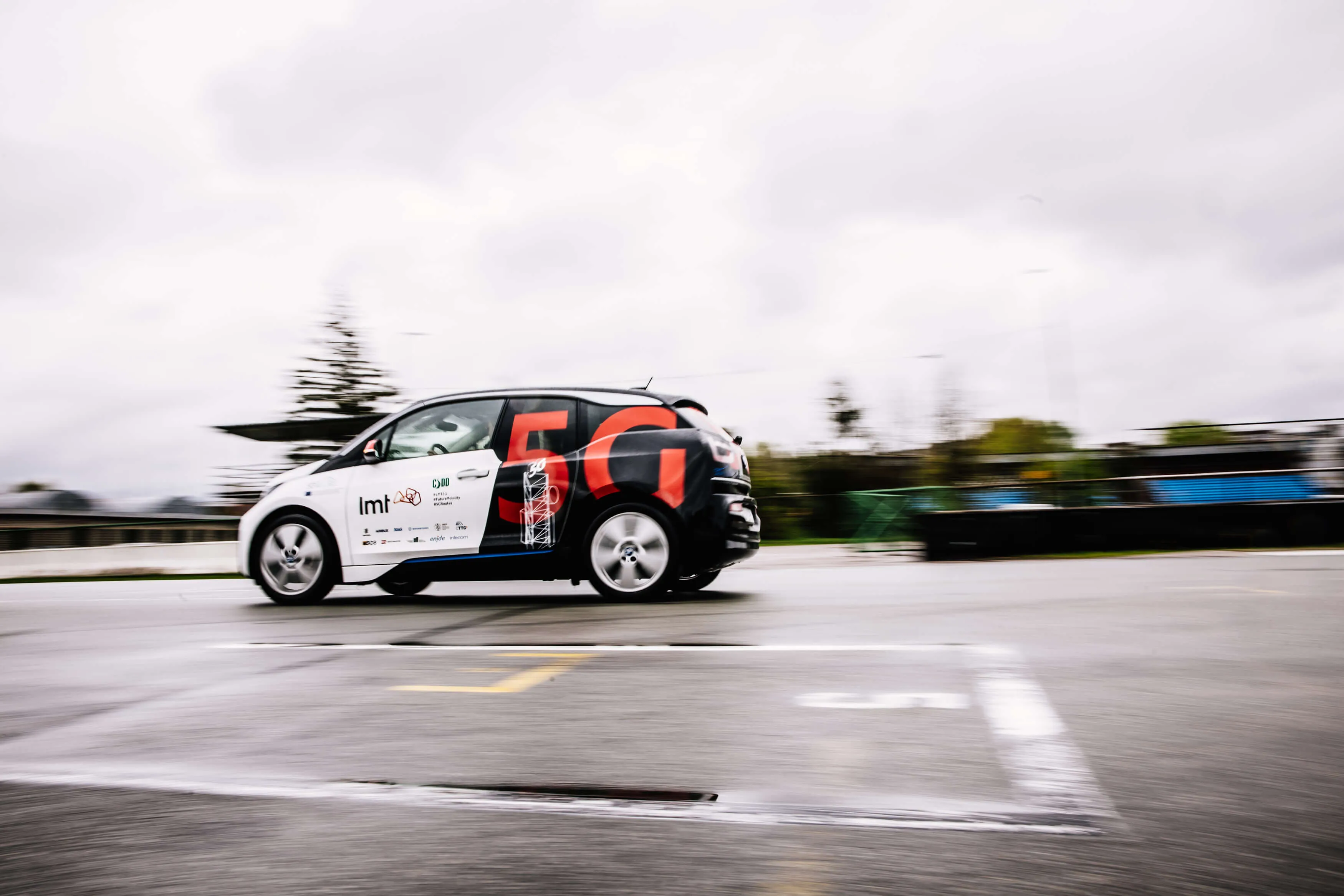
The first use-case demonstrations, as part of the European Union-funded 5G-Routes project, have been held at the 5G cross-border mobility testbed at the Bikernieki race track in Riga, Latvia.
5G-Routes is a consortium made up of 21 partners from nine European countries, whose role is to develop innovative and commercially exploitable connected and automated mobility (CAM) use cases and ensure cross-border automated mobility among a number of network operators.
The testbed has been developed by the Latvian mobile firm LMT, in collaboration with Estonia's Telia.
The main challenge of CAM across borders is ensuring seamless connectivity - something which has been addressed by EU projects such as 5G-Mobix, which focuses on developing 5G use cases in transportation.
“The biggest challenge in testing innovations over the 5G network in a cross-border setting is finding a safe environment that enables undisturbed testing in realistic conditions," said Artūrs Lindenbergs, mobility innovation lead at LMT.
"Thus, a closed and safe cross-border testing space significantly alleviates this hurdle, facilitating testing on a wider scale and massively accelerating the development of innovative cross-border solutions in all industries, including smart mobility,”
Four cross-border use cases were demonstrated, including the Latvian Institute of Electronics and Computer Science's showcase of dynamic vehicles platooning.
The Vedecom Institute for the Energy Transition and Tallinn University of Technology (TTU) tested two interconnected use cases – a vulnerable road user (VRU) collision avoidance and connected maintenance.
In the demo, a pedestrian received alerts from a connected electric vehicle that had detected faults via sensors, warning the pedestrian of a potential collision and providing crucial seconds to remove themselves from danger.
The VRU and the electric vehicle were each connected to a different mobile operator, testing the cross-border connectivity.
There are now plans to test use cases in the Valka-Valga trial site, located on the Latvian-Estonian border, and the Finnish-Estonian cross border trial site, situated between the Vuosaari and Muuga harbors.
5G-Routes has received funding from the European Union's Horizon 2020 research and innovation programme.









